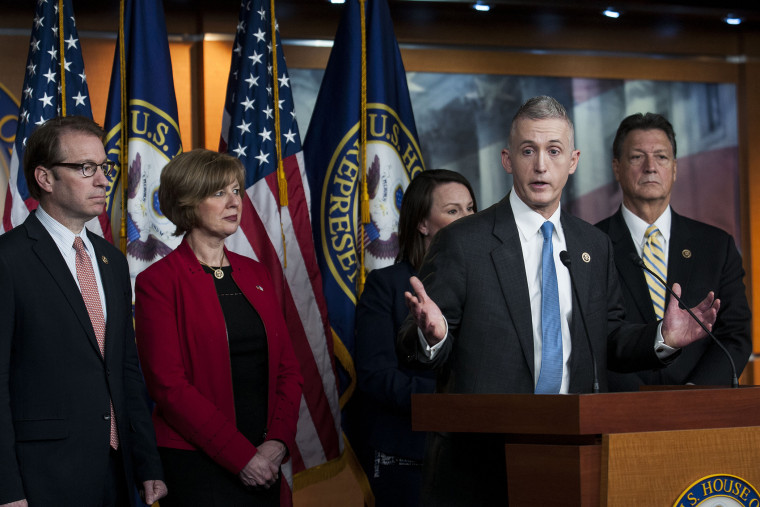When House Speaker John Boehner (R-Ohio) announced his resignation, the pieces appeared to be in place for a relatively smooth transition. House Majority Leader Kevin McCarthy (R-Calif.) would move from the #2 to the #1 post, and he'd get the promotion without a lot of drama and infighting.
McCarthy's accidental honesty about the partisan Benghazi investigation, coupled with far-right concerns that he'll simply be another Boehner, has created a very different dynamic.
In just two days, House Republicans will meet behind closed doors to hold a secret-ballot election. Their task is simple: nominate the GOP's next Speaker. The winner doesn't need 218 votes; he'll simply need the backing of a majority of the House Republican conference. The full House will then vote on Oct. 29 -- the day before Boehner ends his career -- presumably to ratify the GOP's selection.
But in practice, it's unlikely to be a smooth process. McCarthy will face two intra-party rivals this week -- Reps. Jason Chaffetz (R-Utah) and Dan Webster (R-Fla.) -- neither of whom appears to have the support necessary to prevail. The odds are in the California Republican's favor that he will be the Republicans' official choice.
But there will be a three-week gap between the closed-door nominating process and the actual election of the next Speaker on the House floor. And a lot can happen in three weeks.
The Washington Post, for example, notes today that some of Rep. Trey Gowdy's (R-S.C.) supporters still believe the Benghazi Committee chairman can succeed Boehner as Speaker.
Gowdy denies interest in running for majority leader, and Steve Scalise claims he has the votes locked up for the #2 job, but there is buzz that the South Carolinian could always change his mind. John Boehner yesterday postponed down-ballot leadership elections from later this week until Oct. 29. That is a week after Gowdy will get to question Clinton. His allies hope that, if he does a good job, there will be energy for a fresh Draft Gowdy movement.
The last "Draft Gowdy movement" came together quickly early last week, before the South Carolina Republican shut it down.
But let's not miss the forest for the trees: even if McCarthy is chosen by the Republican conference this week to be the next Speaker, it doesn't mean the outcome is a foregone conclusion. On the contrary, three more weeks of palace intrigue is quite likely.
Indeed, there's no guarantee that the drama will end before Election Day. Remember, the next Speaker will need 218 votes. Under the circumstances, no GOP candidate should expect any votes from Democrats, which means Boehner's successor will need 218 Republican votes.
According to the Clerk of the House's office, there are 247 House Republicans, which means, if 29 GOP House members balk at their party's choice for Speaker, the race will go to multiple ballots for the first time since 1923.
Don't surprised if the process that was supposed to be easy turns very messy, very quickly.
